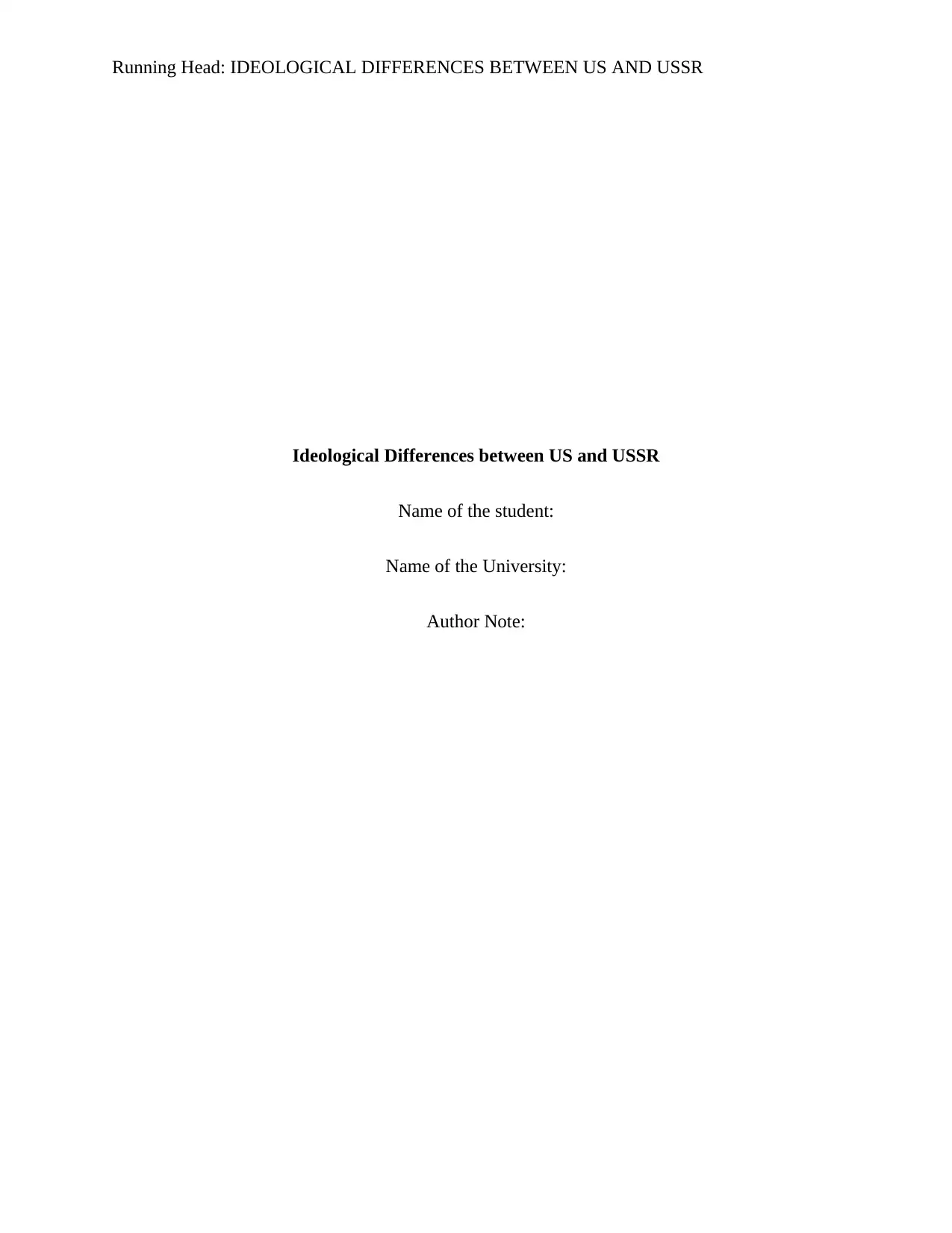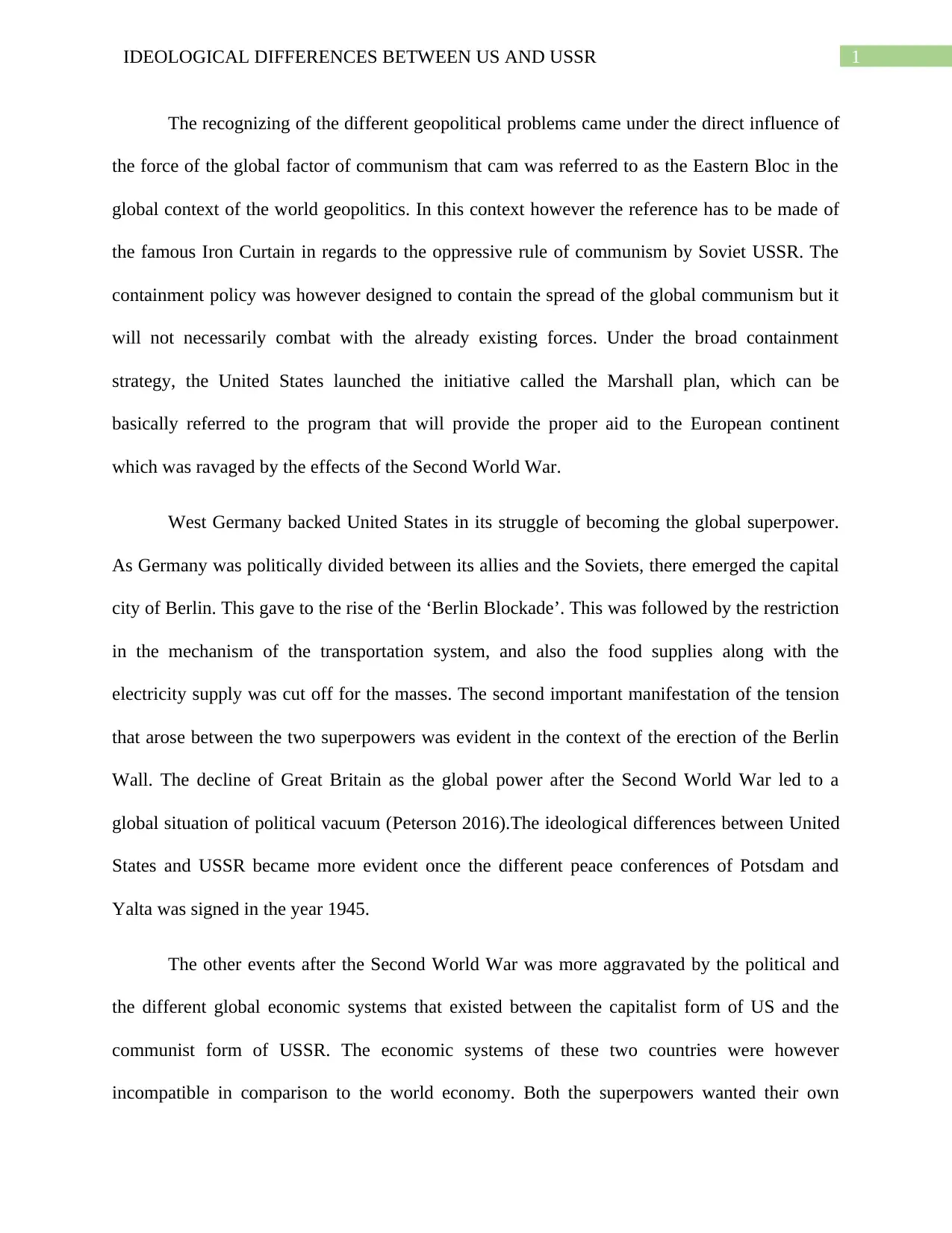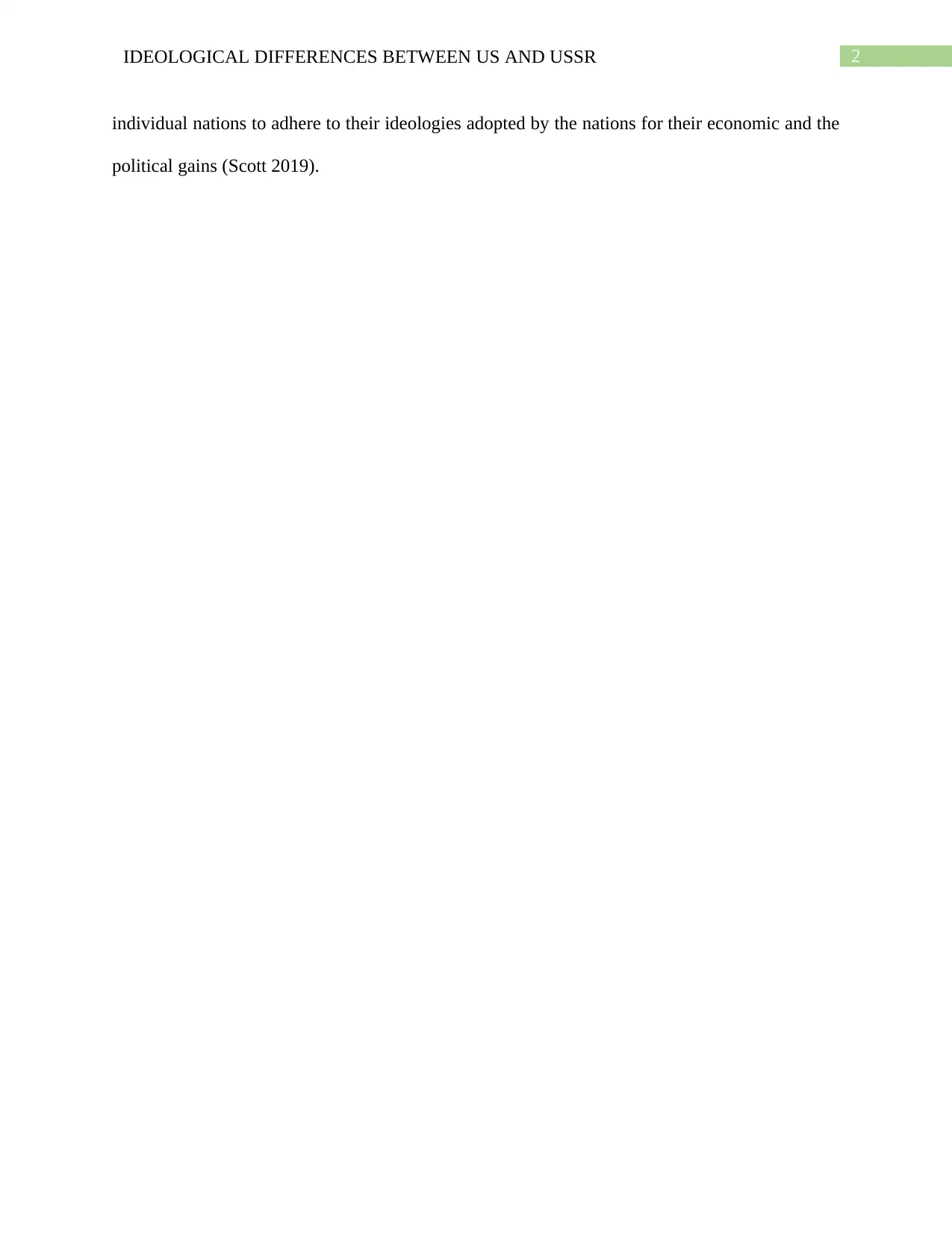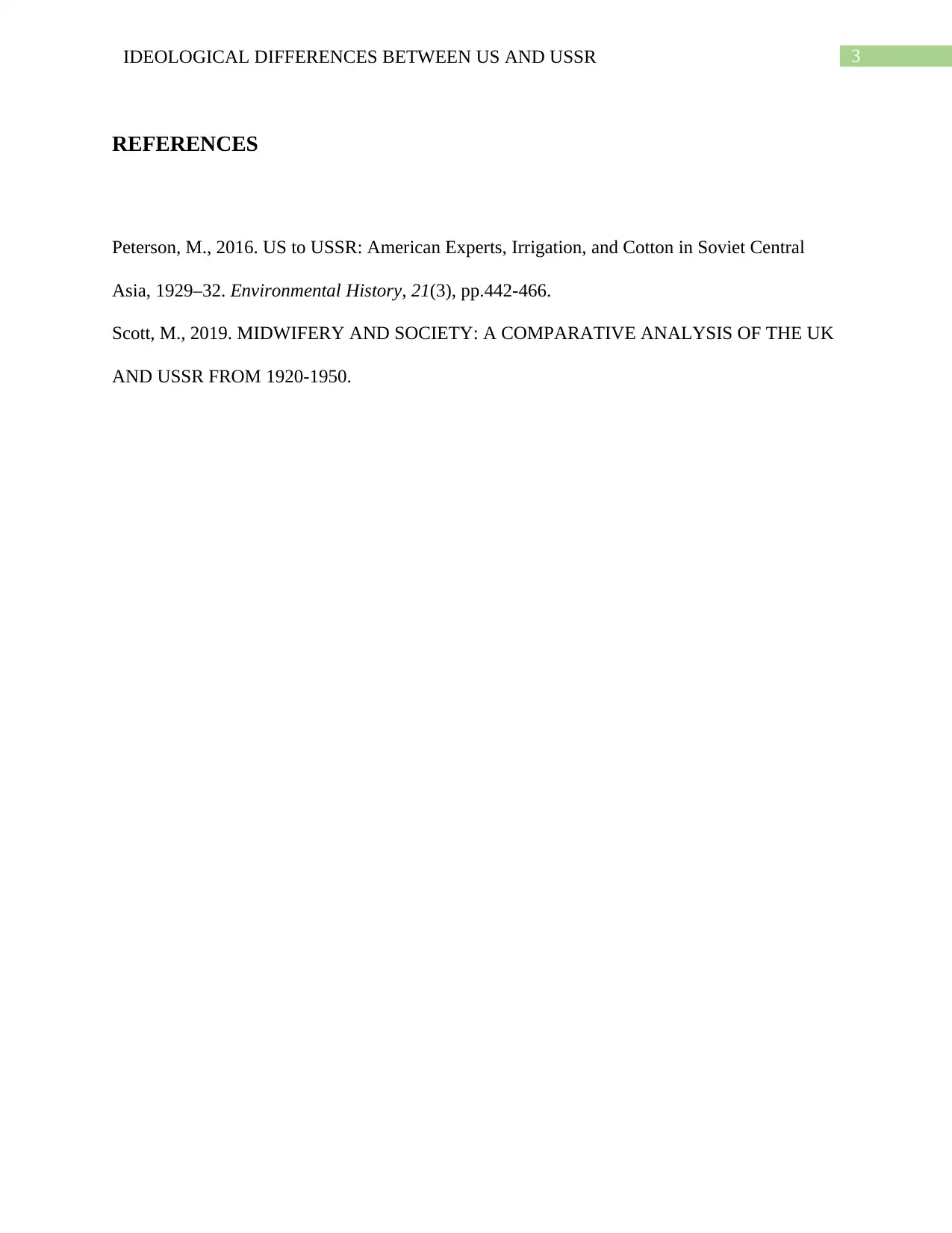A Comparative Analysis of Ideological Differences: US and USSR
VerifiedAdded on 2022/08/09
|4
|474
|331
Report
AI Summary
This report provides a comprehensive overview of the ideological differences between the United States and the USSR, focusing on the context of the Cold War. The assignment examines key events like the Berlin Blockade and the implementation of the Marshall Plan, highlighting the contrasting economic systems of capitalism and communism. It also explores the political tensions that arose from these differences, particularly after the Second World War, and the impact of the ideological conflicts on global politics. The report also explores the containment policy and its role in managing the spread of communism, as well as the impact of the decline of Great Britain as a global power on the geopolitical landscape. The provided references support the analysis of the topic.
1 out of 4











![[object Object]](/_next/static/media/star-bottom.7253800d.svg)